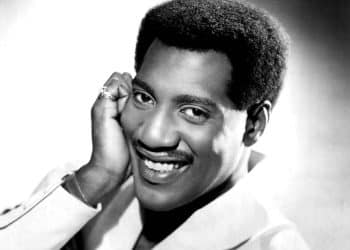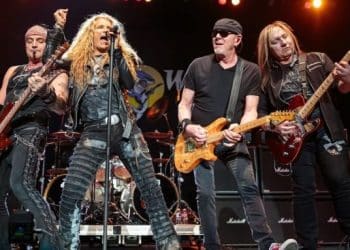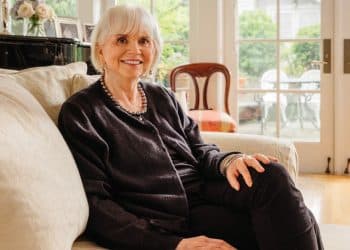Producer/artist Pharrell Williams has been on top of the music game for almost 20 years, and he's still reaching new heights of success ever since his smash hit "Happy" and Oscar nomination. Now that he’s in another stratosphere of the fame game, one would think the artist would become more PC (politically correct), but this isn’t necessarily so with the hitmaker. In April’s issue of GQ, Pharrell acts as the cover man AND cover story in which he talks about controversial topics such as politics, race, and even women's rights. He also hits on topics such as his infamous, big brown hat worn at the Grammy’s (as opposed to the trucker hat of 10 years ago), which has since debuted on his head in red, black, and gray versions, and has since gotten its own Twitter pages.
William’s latest album is titled G I R L, what he calls an ode to women everywhere. Which would explain why, when it comes to the political direction of the country, Pharrell says Hilary Clinton has dibs on the White House again come 2016.
"Let me tell you why Hillary's going to win. You got the Democrats; you got the Republicans. You got the Bloods; you got the Crips. Everything is red and blue in this country. You know what else is red and blue? Blood. Blood is blue in your body until air hits it, and then it turns red. That means there's unity,” Pharrell explained. “There's gonna be unity. So when you think about a night where there's late-night talk-show hosts and it's mostly women, that's a different world. Right? A world where seventy-five percent of the prime ministers and the presidents were women: That's a different world. That's gonna happen, and it's gonna happen when Hillary wins.”
When asked about the controversy over allegedly not having a woman of color on the cover of G I R L, Pharrell said the grips are all about insecurity, and that he’s one of the most indiscriminate people…just look at his video for “Happy”!
“The girl that was closest next to me is black, but they didn't know that, so they jumped the gun. And it wasn't all black women…It’s like Yo, you don't need nobody to represent you. You represent you. You represent the best version of who you could be. You go out there and change the world.” He continues, “So why are we still having this conversation?…It doesn't make sense to me. That kind of divisiveness is not necessary at a time when we're supposed to be unifying. That's what happiness is all about, and if you look at my "Happy" video, I had everybody in there: fat, skinny, gay, straight, purple, polka-dot, plaid, gingham print, houndstooth, alien. I fuckin' had dogs in there! I had children in there! I had kids in there! I'm the most indiscriminate person that there is! I believe in equality.”
And then there’s the hat, the one that sits perched atop his head and has people comparing it to everything from the Arby’s logo to the hat of a sheriff from a spaghetti western. But Pharrell explains its significance: " It’s Vivienne Westwood, an ode to her boyfriend at the time; they had a store together called World’s End. The guy who went on to sign the Sex Pistols, Malcolm McLaren."
Well, that clears that up! Check out the full interview at GQ.com.
In the April issue of GQ, Pharrell Williams takes center stage as the frontman, captivating readers with his insights on politics, race, and of course, ‘the hat’. As an influential figure in both music and fashion, Pharrell’s words carry weight and resonance.
In this exclusive interview, he delves into the importance of active engagement in politics, urging individuals to take a stand and make their voices heard. With his unique perspective and platform, Pharrell emphasizes that now more than ever we need to be informed citizens who actively participate in shaping our society.
Beyond politics, Pharrell also explores the intersection of race and fashion in society. He sheds light on how these two realms intertwine and influence one another. Recognizing the power of fashion as a form of self-expression, Pharrell advocates for inclusion and diversity within the industry.
By challenging traditional norms and pushing boundaries through his own personal style choices, he encourages others to embrace their individuality without fear or hesitation. Through this conversation about race and fashion, Pharrell sparks a much-needed dialogue about representation and equality in an ever-evolving world.
The Importance of Active Engagement in Politics
Get ready to learn why active engagement in politics is absolutely crucial. In today’s world, it’s no longer enough to simply sit on the sidelines and hope for change. By actively participating in politics, you have the power to make a real difference and shape the future of your country.
Whether it’s through voting in elections, attending town hall meetings, or even running for office yourself, your voice matters.
One of the main reasons why active engagement in politics is so important is because it allows you to have a say in the decisions that directly affect your life. From healthcare policies to education reforms, these political decisions have a profound impact on our daily lives. By staying informed and getting involved, you can ensure that your interests and values are represented.
Furthermore, active engagement in politics helps foster a sense of community and unity among citizens. When we come together to fight for common causes and advocate for positive change, we build stronger bonds with our fellow citizens. It allows us to recognize that we are not alone in our struggles and aspirations. Through political activism, we can create a collective voice that demands justice and equality for all.
So don’t underestimate the power of your involvement in politics. Every action you take has an impact, whether big or small. By staying engaged and using your voice to advocate for what you believe in, you can help shape a better future for yourself and generations to come.
Remember, democracy thrives when its citizens actively participate – so let’s get out there and make our voices heard!
The Intersection of Race and Fashion in Society
Imagine yourself in a world where fashion reflects the intersection of race and society, captivating everyone’s attention. In this world, fashion becomes a powerful tool for self-expression and cultural identity. It goes beyond simply dressing up; it becomes a statement that challenges societal norms and breaks down barriers.
People use clothing to celebrate their heritage, embrace diversity, and promote inclusivity.
In this fashion-forward society, designers from different racial backgrounds collaborate to create unique pieces that combine traditional elements with modern aesthetics. Runways are filled with models of diverse ethnicities showcasing their individual beauty and style. The fashion industry recognizes the importance of representation and actively works towards breaking stereotypes by featuring models with various skin tones, hair textures, and body types.
Moreover, fashion becomes an avenue for conversations about race and social issues. Through clothing choices, people express their support for equality and justice. They wear symbols that represent unity and solidarity with marginalized communities. Fashion empowers individuals to make bold statements about their beliefs while encouraging others to do the same.
In this imagined world where race intersects with fashion, society embraces diversity wholeheartedly. Fashion is not just about looking good; it is a means of expressing oneself authentically while simultaneously promoting understanding and acceptance among different racial groups. It serves as a reminder that no matter our background or skin color, we all have the power to shape culture through our personal style choices.
Conclusion
In conclusion, active engagement in politics is crucial for the progress and well-being of our society. As Pharrell emphasized in his interview with GQ, it’s not enough to simply have opinions; we must actively participate and make our voices heard through voting, activism, and supporting causes that align with our values. By doing so, we can drive positive change and work towards a more inclusive and equal future for all.
Furthermore, Pharrell’s discussion on the intersection of race and fashion highlights the need for representation and diversity within the industry. Fashion has the power to shape societal norms and perceptions, so it’s essential that people from all racial backgrounds are given opportunities to be seen and celebrated. By embracing different cultures and perspectives in fashion, we can challenge stereotypes, break down barriers, and promote a more inclusive society where everyone feels valued.
Ultimately, Pharrell’s insights serve as a reminder that each of us has a role to play in shaping the world around us. Whether it’s through political engagement or promoting diversity in fashion, we have the power to make meaningful change. So let’s take inspiration from Pharrell’s words and actions as we strive towards a future where equality reigns supreme.







